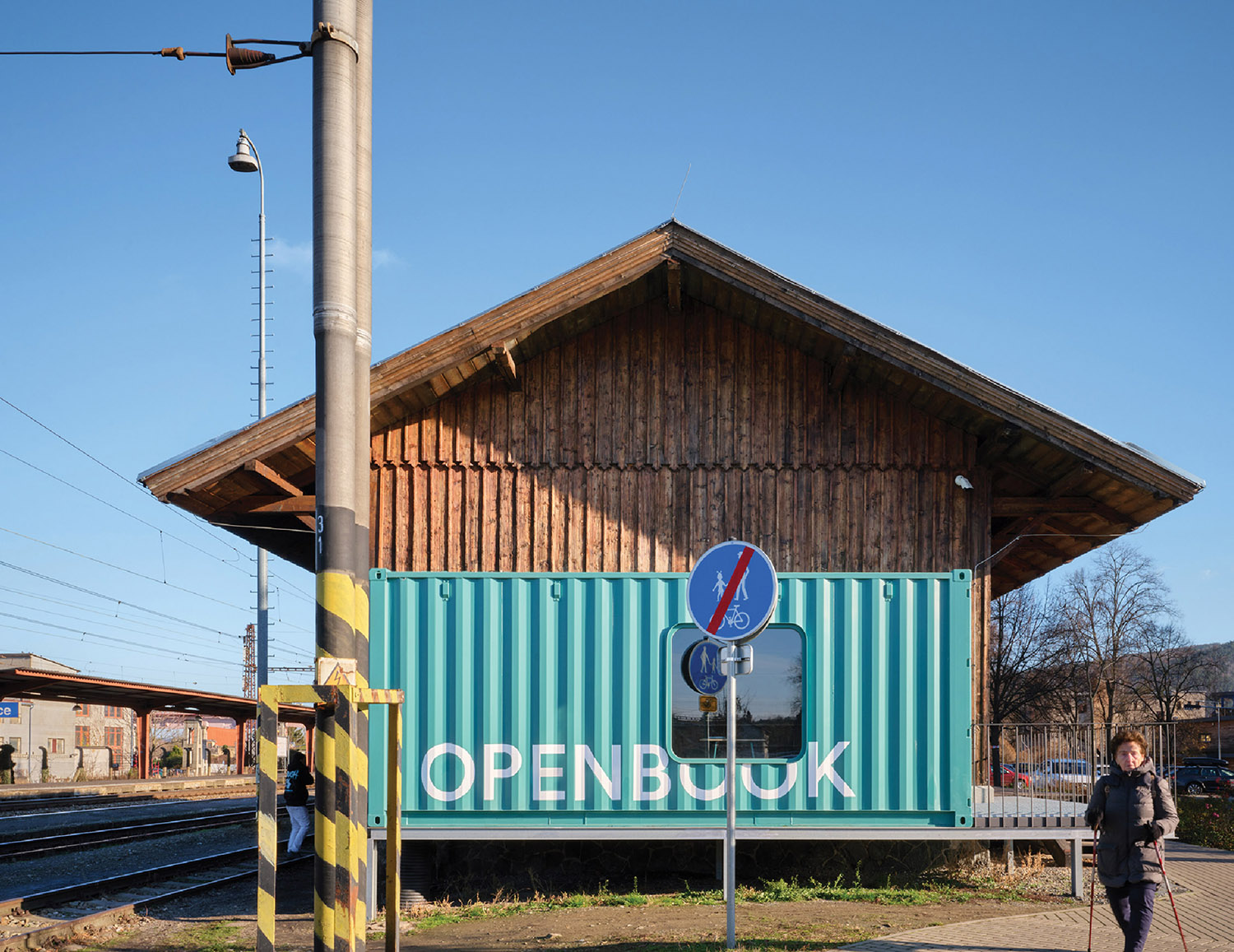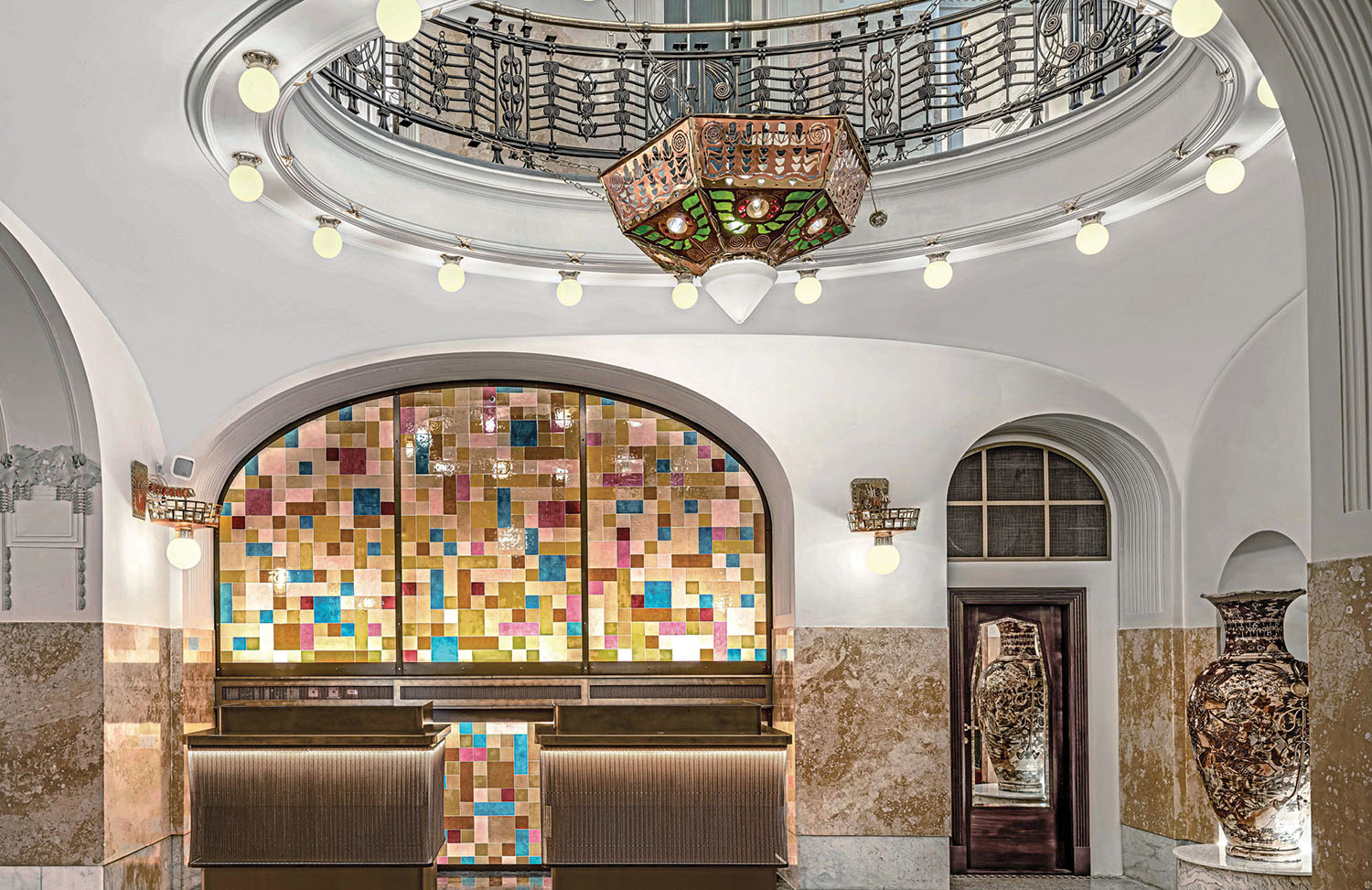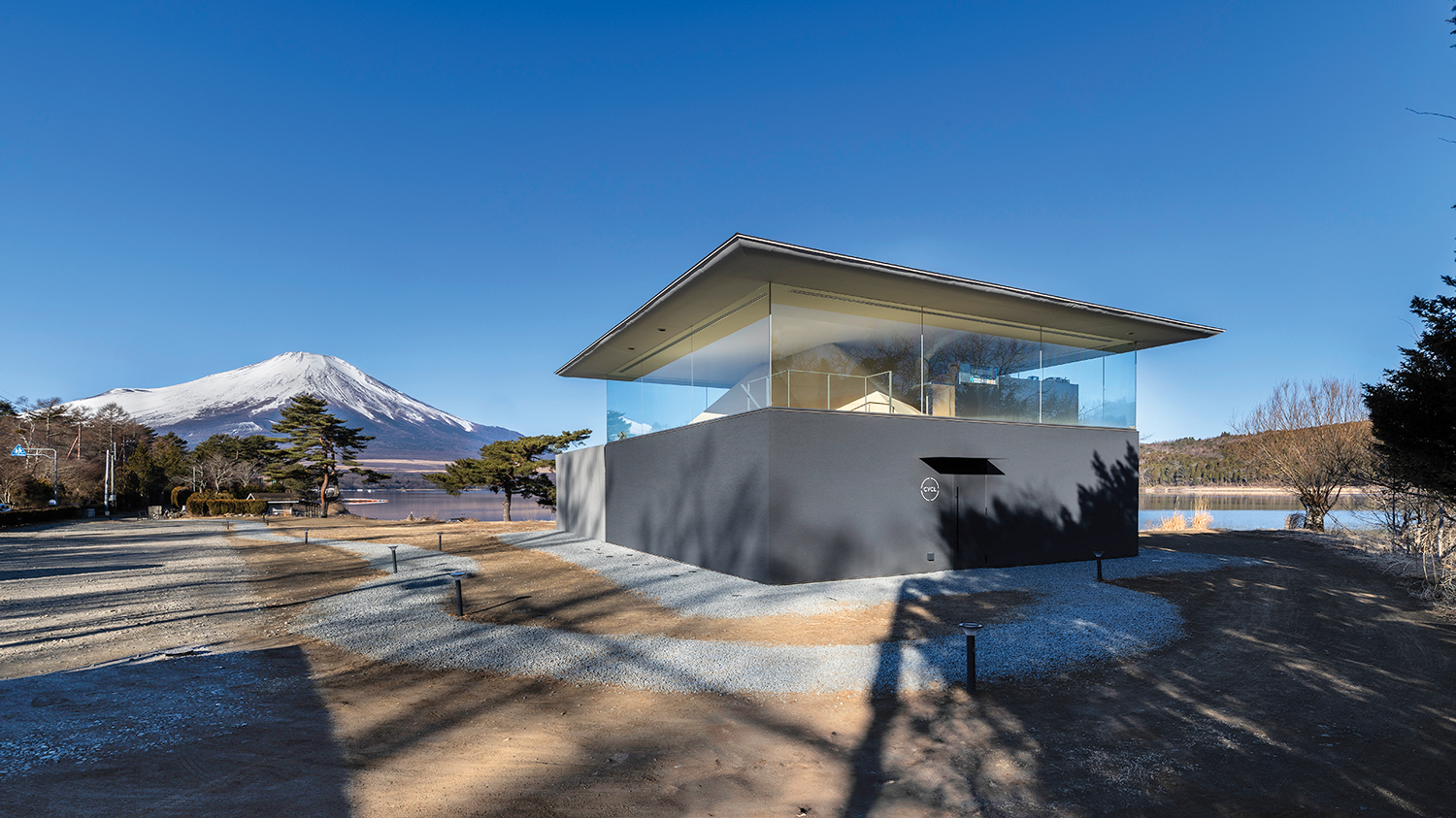Alterstudio Architecture Creates a Dynamic Family Home for Texas Art Collectors

Contemporary art collectors Janelle and Alden Pinnell once thought about turning a former electrical plant in downtown Dallas into a home that would double as a gallery for their extensive holdings. Instead, they collaborated closely with a number of artists to transform the 1920s brick building into the Power Station, one of the city’s liveliest experimental art spaces, which opened to the public in 2011.
A few years later, the couple returned to the idea of making a home for themselves, their three children, and their still-expanding collection. “We needed to build something from scratch,” Alden says. Treating the project like a collaboration at the Power Station, the Pinnells gave their chosen artists—Alterstudio Architecture—the freedom to experiment, while remaining fully involved clients every step of the way. “It was clear from the beginning that they wanted something out of their house that was well beyond shelter,” Alterstudio partner Ernesto Cragnolino says. “But the question of how to live with their art wasn’t yet settled.”

Located in Highland Park—an affluent district laid out in 1907 by urban planner Wilbur David Cook, who also designed Beverly Hills, California—the Pinnell house is surrounded by Palladian villas, neo-baroque châteaus, and Tudor-revival mansions, some as big as 40,000 square feet, that reflect the conservative tastes of Dallas’s wealthiest denizens. At 12,000 square feet, the residence is comparatively modest in scale, though far more ambitious in its program. Separated from the street by a low berm of gray rocks sprouting cactuses and wildflowers, the two-story house presents as a single horizontal volume of Indiana limestone carved with vertical striae that cast dramatic, shifting shadows in the mornings and evenings. Toward the center of the facade, subtle openings turn the solid surface into a slatted screen, allowing light to filter into the family quarters upstairs while preserving privacy.

Set atop an almost entirely transparent ground floor, the massive stone form projects 35 feet out over a cobblestone entry courtyard. At its center, a young cedar elm tree rises
unencumbered through a rectangular cutout in the canti-levered section. Lined with acid-etched glass, the aperture is a delicate, Miesian surprise behind a veneer of Brutalist bulk. Straight ahead, and down a short flight of steps, a single-story, stand-alone structure contains Alden Pinnell’s office, the swimming-pool cabana, and sandwiched between them, an 1,100-square-foot gallery. Perhaps the most conventional space in the house, this simple white box with a concrete floor, 14-foot-high ceiling, and three oversize skylights is also the least traditional element for a residential program. The Pinnells treat the gallery almost as an extension of the Power Station, opening it intermittently for events and exhibitions throughout the year. “They constantly move new works in and out of the space,” Alterstudio partner Tim Whitehill reports. “It’s ever evolving, constantly getting more refined.”

On the other side of the courtyard, the art-filled residence blurs the line between home and museum, while always prioritizing comfort. The entry foyer, dominated by an enormous enamel-on-canvas work by Steven Parrino, leads directly to the formal living-dining room where a massive fireplace, clad in the same limestone as the facade, rises 23 feet through the two-story void overhead. A 40-foot-long wall of sliding glass doors opens onto a terrace and the backyard, which landscape architect David Hocker has sculpted with monumental concrete risers like the steps of a Mayan pyramid, turning the whole garden into a work of environmental art.

Back in the living area, the witty form of the house becomes apparent for the first time. While the front facade reads as orthogonal, running parallel to the street, the view from the fireplace—out to the garden and down the axis of the splendid room—reveals that the long building bends boomerang-style in the middle to follow the property line of the chevron-shape site. A luxurious but functional kitchen with a statuary-marble island and custom built-ins acts as a hinge between the more public and formal front section and the more sequestered and casual rear wing. The pivot point is marked by curved glass walls that add a touch of roundness to the house’s strict geometry—part of what partner Kevin Alter calls the firm’s “private project” to avoid “the ruthless abstraction of high modernism” by working in a gentler idiom, “more like modern art, multifaceted,” less rigid.

Upstairs, in the family quarters, space seems to fracture as though refracted through a prism. The three children’s bedrooms occupy the rear wing, while the main suite surrounds the glass-walled aperture above the entry courtyard. Janelle’s bathroom enjoys a view of the cedar elm, abstracted through milky-blue glass. Her office—“the cockpit of the house,” according to Alter—overlooks the living area through a veil of walnut slats and also opens onto a plant-filled courtyard hidden behind the slatted street facade. A smaller adjoining courtyard provides Alden’s glass-wall shower with an equally lush view, one that it shares with the hallway gallery running above the living area.
Such framing stratagems and shifting perspectives are found throughout the public and private zones—inside and out—which is hardly surprising given the genesis of the project. More than just a shelter, the dynamic house has the power of an artwork all its own.









Project Team:
Michael Woodland, Jenna Dezinski: Alterstudio Architecture. Silvia Zofio: SZProjects. Hocker Design Group: Landscape Consultant. Essential Light Design Studio: Lighting Consultant. Brobus Technologies, Inc: Audiovisual Consultant. Wiss, Janney, Elstner Associates, Inc.: Water-Proofing Consultant. Ellinwood + Machado Consulting Engineers: Structural Engineer. Positive Energy: MEP. Monk Consulting Engineers: Civil Engineer. Steve Hild Custom Builder: General Contractor.
Product Sources: Cassina: Coffee Table, Low Side Table (Living Area). B&B Italia: Lounge Chairs. Roll & Hill through The Future Perfect: Fireside Floor Lamp. Espasso: Sofa, Fireside Armchair (Living Area); Sofa (Cabana). Delta: Recessed Lights (Living Area). Luminart: Pendant Fixture (Dining Area). Artefacto: Dining Table. Carl Hansen & Søn through Suite NY: Dining Chairs. Knoll: Outdoor Dining Table and Chairs (Terrace). Le Porc-Shop: Custom Outdoor Lounge Chairs (Terrace, Patio); Sofa (Patio). Rotsen Furniture through Chairish: Coffee Table (Cabana). All Wood Cabinetry: Custom Cabinets. ABC Carpet & Home: Rug. Holland Marble Company, Inc.: Kitchenette Countertop; Window Bench (Cabana); Island Marble Tile (Kitchen). Ceramica Suro: Custom Wall Tile (Cabana, Patio); Custom Lava-Rock Planter (Shower Courtyard, Patio). Garibaldi Glass: Custom Window Wall (Main-Suite Aperture). Lapalma: Bar Stools (Kitchen). GamFratesi through Suite NY: Chairs. B.Lux: Table Lamp, Pendant Fixture. Miele: Cooktop, Oven, Dishwasher. Sub-Zero: Refrigerator. Lobster’s Day: Coffee Table, Side Tables (Patio). Glazing Vision: Skylight (Gallery). Juno: Track Lighting. Throughout: Bybee Stone Company: Limestone Flooring and Cladding. Permalac: Exterior Steel-Panel Finish. Sky-Frame, Western Windows, MHB: Windows and Doors.


